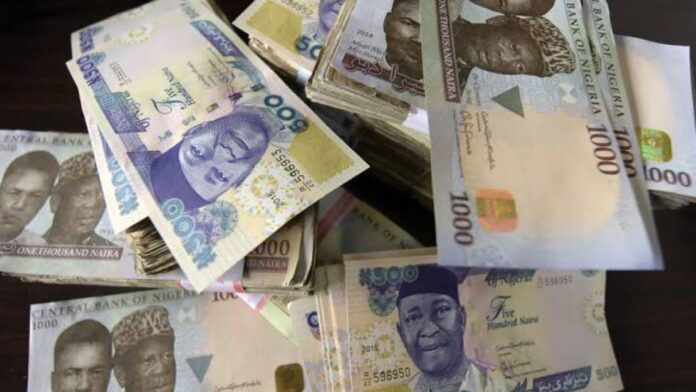Nigeria’s public debt stock surged by ₦12.6 trillion between March and June 2024 amid continued depreciation of the naira which has remained pressured despite the Central Bank of Nigeria’s efforts to shore up the local currency.
This spike in the nation’s debt burden now puts the total debt at ₦134.3 trillion, according to the most recent data published by the Debt Management Office (DMO).
“The modest rise (in Nigeria’s public debt stock) was driven by two factors. The first is the depreciation of the naira, which added about NGN5.9trn to the total debt stock,” said analysts at Lagos-based FBNQuest Capital Research in a note on Tuesday.
As reported by BusinessDay, the analysts explained that the exchange rate used to convert dollar-denominated debt to naira was ₦GN1,470.2/USD compared with ₦GN1,330.3/USD in Q1 ’24.
“An additional contributing factor is due to fresh borrowings from the domestic market.”
A further probe into the DMO’s data revealed that Africa’s fourth largest economy has as much as ₦63 trillion ($43 billion) as its foreign debt, accounting for 47 per cent of the total debt stock.
The Federal Government of Nigeria (FGN) took the lion share, borrowing approximately ₦56 trillion while the 36 states plus the Federal Capital Territory (FCT) had ₦7 trillion as their external debt.
A more cursory look at the data showed that the Nigerian government relied more on domestic borrowings as it accounted for 53 per cent of total debt profile, with the FGN taking ₦66 trillion and state governments having ₦4 trillion as their debts.
Nigeria’s debt stock has grown from 53 per cent recorded in Q1 to 58 per cent in Q2, defying the DMO’s self-imposed public debt ceiling of 40 per cent, as outlined in the agency’s Medium-Term Debt Management Strategy.
Nigeria’s debt stock has grown from 53 per cent recorded in Q1 to 58 per cent in Q2, defying the DMO’s self-imposed public debt ceiling of 40 per cent, as outlined in the agency’s Medium-Term Debt Management Strategy.



